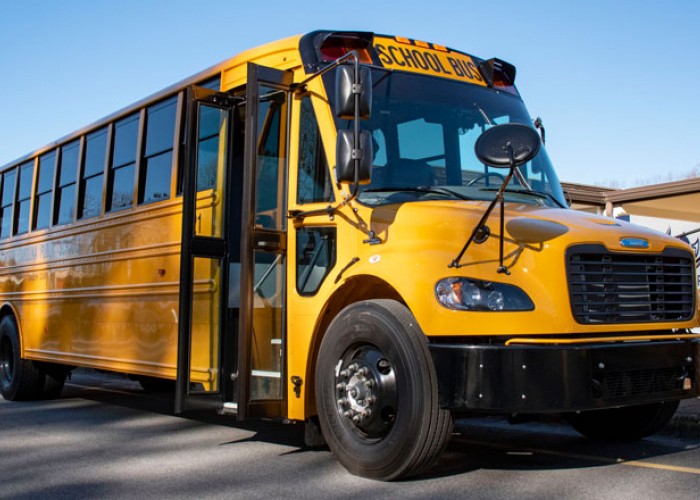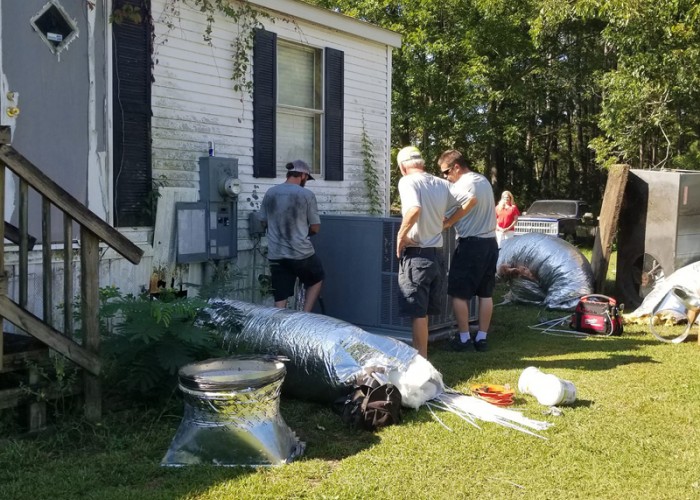Save Energy With Co-op Programs
Electric co-ops offer a range of energy efficiency tools and programs
As member-owned, not-for-profit utilities, keeping costs low for members is a priority for North Carolina’s electric cooperatives and their boards of directors. Helping members use energy more efficiently is one way co-ops across the state are achieving this, using a range of resources including home energy audits, energy use data and, in some cases, energy efficiency loan programs.
“Using less energy in your own home is one way to immediately reduce costs,” said Chris Powell, coordinator of public relations for Albemarle EMC.
Energy audits
Powell conducts 75 to 100 free energy audits a year for Albemarle EMC members, typically following unusually high bills. During an audit, Powell inspects the house with an eye for how it’s using energy. He starts by checking the heating and cooling system, going straight to the thermostat.
“The heating and air system is a home’s largest user of energy, typically followed by the water heater,” Powell explains. “We encounter a lot of heat pumps that are under- performing or are just running on backup heat.”
Following an audit, Powell provides members with a report listing his findings, along with recommended fixes, including if an appliance needs to be serviced.
Energy use tracker
Another tool available to co-op members is energy use data. Member service representatives can typically access it, and it is often available for members to explore online. Using graphs, a home’s energy use can be compared with high and low temperatures over the course of a day or month. In many cases, any energy use anomalies will stand out, especially to a trained eye.
“Looking for that correlation between temperature and usage is the first step in diagnosing a problem,” said Jon Jacob, energy solutions manager for Blue Ridge Energy. His co-op’s Usage Tracker tool shows members daily home energy use data, along with daily temperatures. “Heating and cooling systems are often the reason for higher than usual bills, but in some cases devices like water heaters or well pumps may be running constantly due to an otherwise unseen issue.”
Even a leaky faucet or damaged pipe can create problems, causing a well pump to run constantly. If data show a steady source of unknown use, Jacob can test things out with a member. They can find the breaker for the well pump, for example, turn it off, and see what energy use looks like the next day.
Data can also be used to set high use alerts, or for tracking energy use for members using a pay-as-you-go prepaid energy feature.
Energy efficiency loans
Although not all electric co-ops offer energy efficiency loan programs, some use the tool to help members improve their home’s energy use. Roanoke Cooperative, for example, makes cost effective upgrades to member-owners’ dwellings with little to no upfront costs through its Upgrade to Save program — costs are repaid over time on monthly electric bills. The co-op works with certified contractors and quality control inspectors while overseeing projects to ensure improvements are installed correctly.
To date, more than 1,700 member-owners have participated in the program with average savings of more than $70 per month. In addition, its Roanoke SolarShare program provides health and safety repairs to economically disadvantaged member-owners. Health and safety upgrades made through the program total more than $160,000 in grant funds.
“I believe that Upgrade to Save is one of the most important programs at Roanoke Cooperative,” said Roanoke Cooperative Coordinator of Community Development Susan Williams. “It provides much-needed energy efficiency upgrades to member-owners that may not be able to afford them otherwise.”
-
Commitment to community
-
Share this story:





